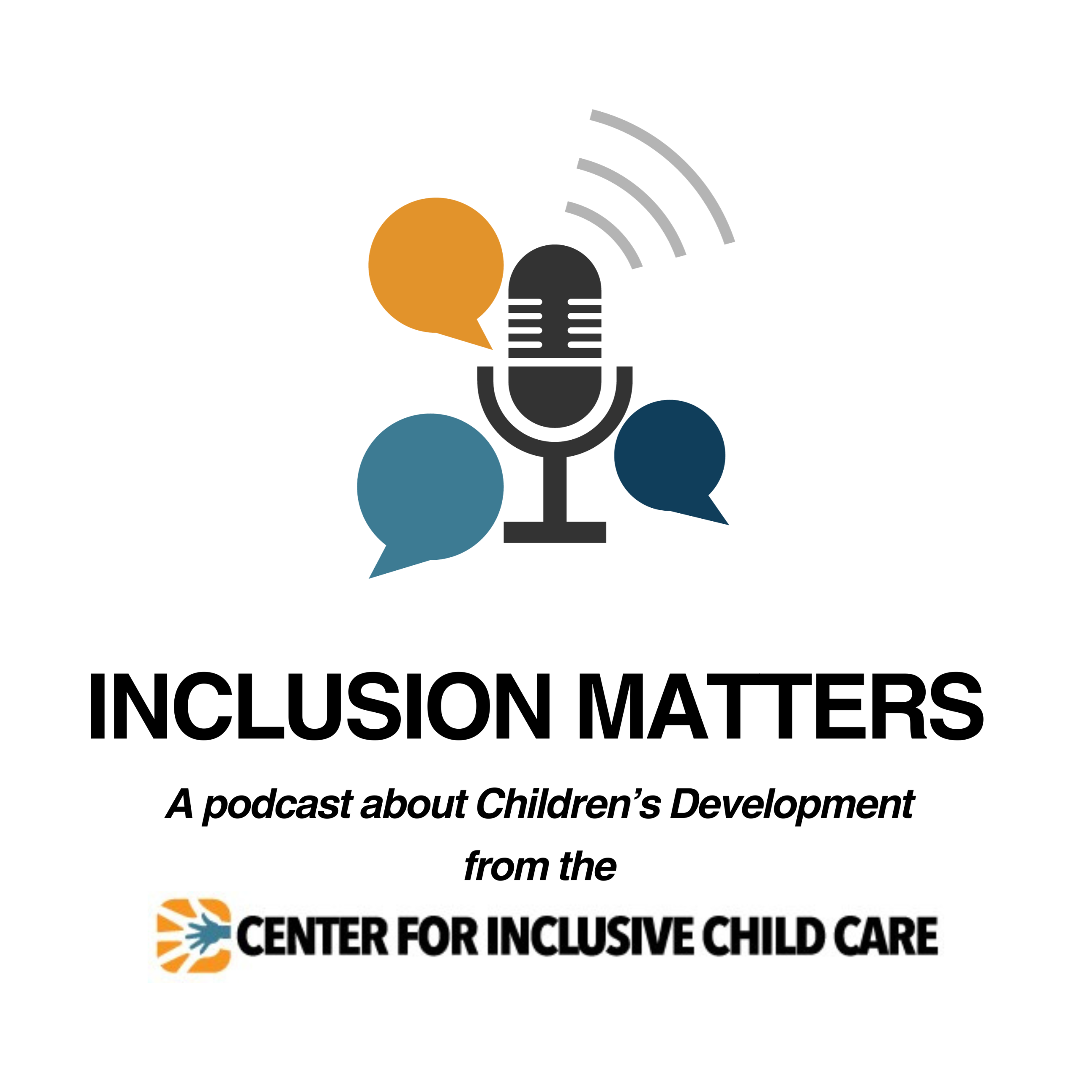Podcast

Inclusion Matters is a podcast produced by CICC. Early childhood experts discuss a wide array of important topics for early childhood professionals.
Inclusion Matters is also available on Spotify, Overcast, Google Podcasts, and Radio Public.
Creativity--Looking for Children’s Cues
In this podcast, Priscilla Weigel and Cindy Croft will discuss children who can present challenges to us by their engagement. Some children are eager to participate in activities and others may need social prompting and encouragement in order to join in the fun. Children show creativity in many ways that can differ from our ideas; we need to read their cues to see when they need some help and when we need to follow their lead!
(Length: 14:33)Meal Time--Magic or Mayhem: Part Three
In the conclusion of our series on daily activities in child care programs, we will talk about the benefits to children with and without disabilities that come from meal time. This is another area of the day when challenging behaviors can take our focus from what we are trying to accomplish like community-building, sharing, emotional regulation and other skills. What can you do when a child eats more slowly than their peers? What about a child who takes someone else’s food? Listen to this lively discussion of the important part of the day.
(Length: 14:51)Group Time--Do you Love it or Dread it: Part One
There are many areas of programming where challenging behaviors occur. Group or circle time is often an activity where children can struggle to stay tuned in and adults can be frustrated by not meeting their goals for it. Listen to this podcasts for creative ideas on how to accomplish your goals with group time by thinking outside the box.
(Length: 11:07)Emotional Sensitivity
Emotional sensitivity is the ease or difficulty with which a child responds emotionally to situations. Some children are very sensitive to what is going around them while others seem oblivious to the feelings or mood of peers. How can we help children learn empathetic skills and also learn about their own feelings and how to express themselves to others? This podcast will look at children’s sensitivity levels and how we as professionals can guide them in their relationships with others.
(Length: 15:39)Intensity--I Want Your Energy!
Intensity as a temperament trait is all about the amount of energy a child uses to express his emotions, and we know that some children cry, talk, and laugh more loudly than anyone else in the program! We want to honor this natural trait in children for the good things about high intensity while also giving children tools for impulse control and friendship skills. Join Priscilla and Cindy as they discuss children with high intensity and the energy they seek from others.
(Length: 15:39)Run Away or Run into Your Arms--Slow to Approach/Withdraw
A child’s initial tendency to respond to a new experience, new person, or new environment can be either ‘arms open wide’ or ‘wait-and-see’. Both types of approaches need our guidance as early childhood professionals to be sure that children are getting the social interactions they need to be successful and validation for their sense of self-esteem. If you work with either or both of these temperaments, you’ll want to listen to this engaging podcast.
(Length: 15:39)